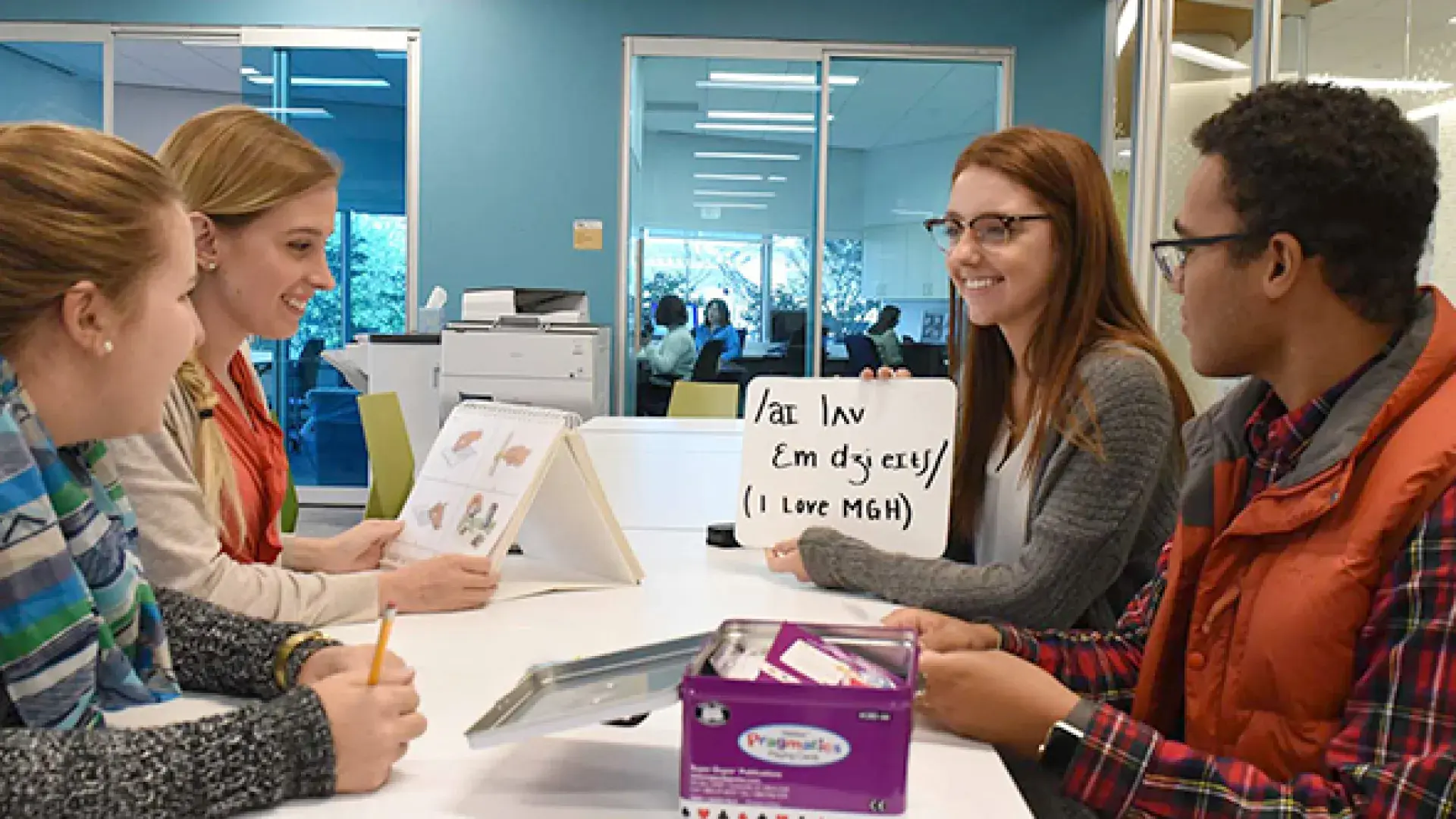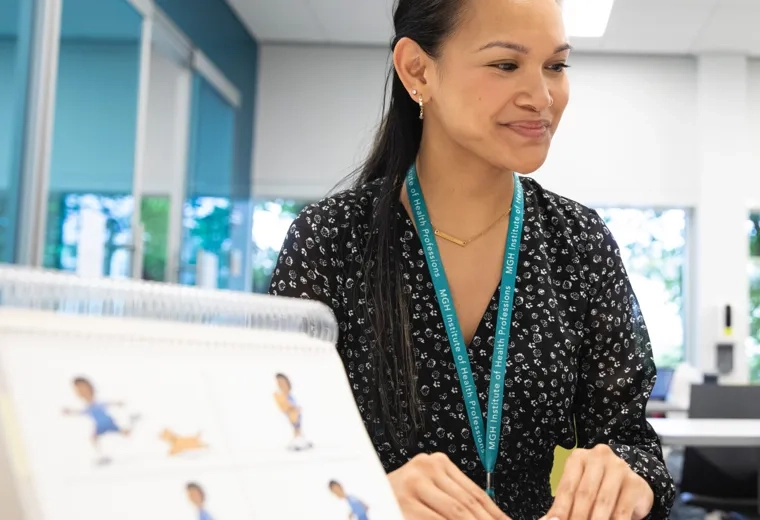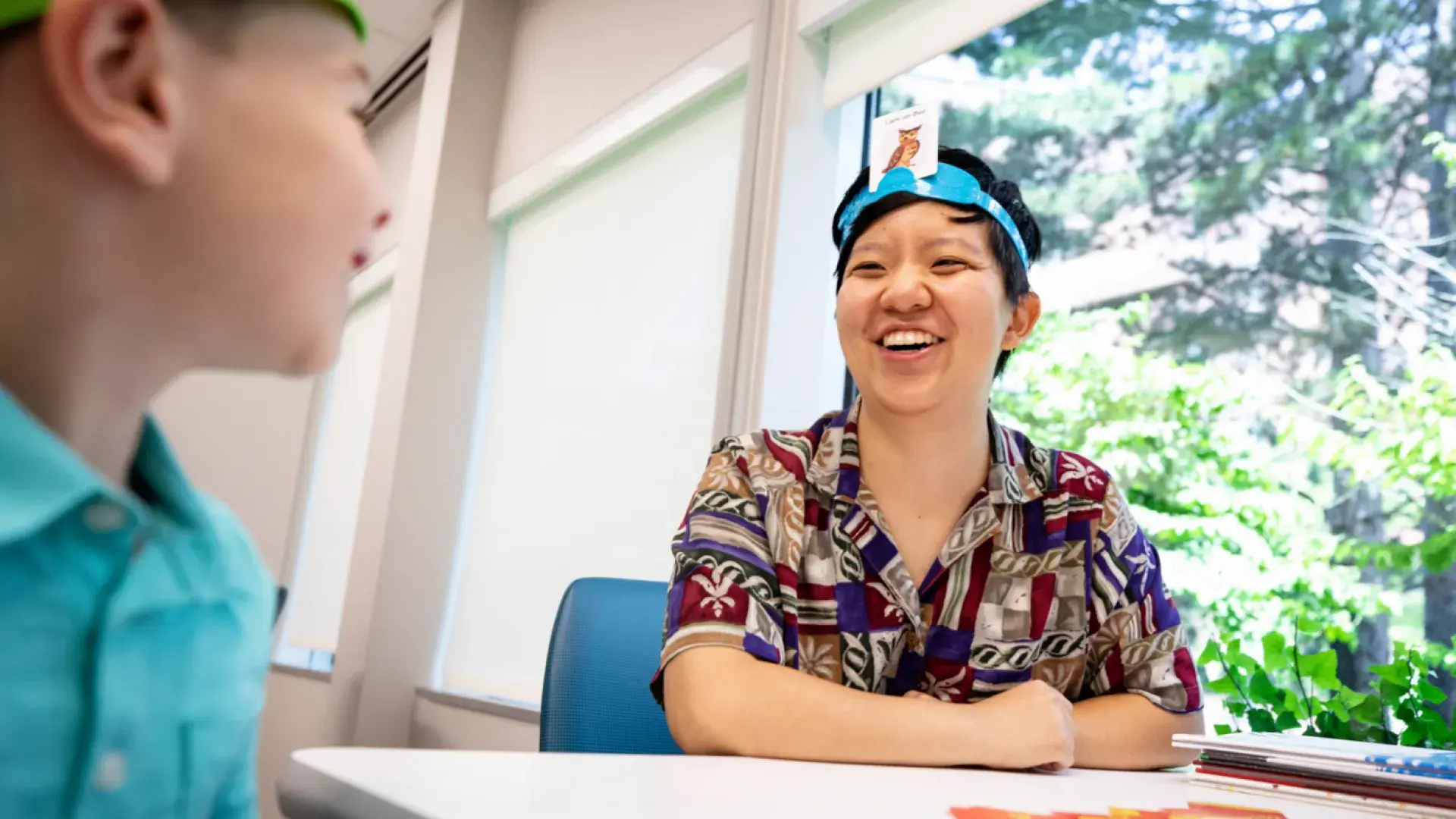
Advancing knowledge about human communication differences and disorders
Our programs focus on all aspects of communication sciences and disorders and literacy - providing you with the knowledge and skills to make a difference in the lives of children and adults.
Our department is a leader in innovative research related to language, hearing, speech, and swallowing. Our sponsored research activity has grown to more than $25 million per year in research and training contracts and grants.








